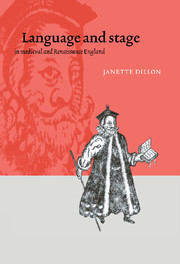1 - Verbum Dei and the rise of English
Published online by Cambridge University Press: 15 January 2010
Summary
The Word had potent kinds of meaning beyond the semantic for laypeople during the Middle Ages. While theologians throughout Christendom lectured on the traditional glosses to the Vulgate Bible (all in Latin, lectures and glosses as well as the bible), laypeople received the incarnate Word in the form of the sacred host, accepting that the words of consecration were uttered in a sacred other language which they could not understand. Understanding the words that were spoken was unimportant to participation in the mass. What the congregation needed to grasp was the sacramental power of the Word, its transforming mystery. The Latin liturgy, at once so remote from and so familiar to ordinary people, functioned via this paradox both to comfort the faithful with the repetition of words heard only and always in this sacred context and to underline their awareness of the ineffable mystery of God. A dialogue between the young Mary Tudor, wondering about the role of the congregation, and her almoner emphasises two different senses of ‘understanding’:
In my God, I cannot see what we shall do at the Mass, if we pray not.
Ye shall think to the mystery of the Mass and shall harken to the words that the priest say.
Yea, and what shall they do which understand it not?
They shall behold, and shall hear, and think, and by that they shall understand.
(Brigden, London and the Reformation, p. 14)- Type
- Chapter
- Information
- Publisher: Cambridge University PressPrint publication year: 1998



